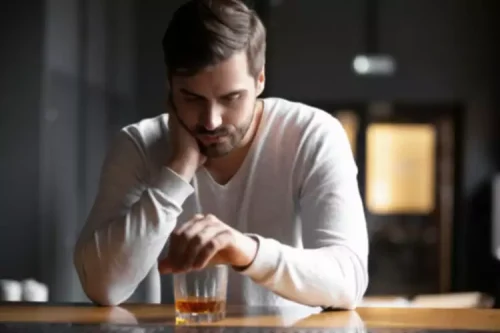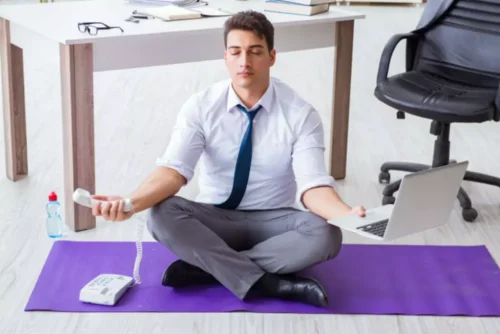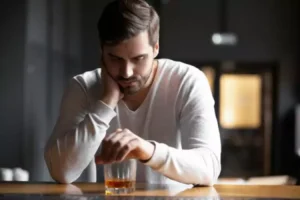
You might take a new way home from work, for example, to keep from going past your favorite old hangout. Getting support doesn’t have to mean going to rehab, although that is an option. Support can also look like joining in-person and online support groups. One 2020 study found potential benefits of combining in-person and online support methods. Knowing relapse signs can help you recognize your risk of relapse, and they may include a return to addictive thinking patterns and compulsive behaviors. By Buddy TBuddy T is a writer and founding member of the Online Al-Anon Outreach Committee with decades of experience writing about alcoholism.
Bee Wild with Bee Sober
Also, available are faith-based counselors with strong experience in supporting recovery where faith plays a meaningful and important role in putting hope within reach of successful recovery. Download the App and select a Counselor or Faith-Based care provider. Select trigger locations and we’ll be there for you when a craving threatens your progress. When the social pressures of life and drinking culture are incredibly high and intense. Bee Sober brings together everything you need, to love being sober. Our mission is simply to make it normal and easy for everyone to enjoy life without drink.
Manage Your Urges
This is particularly concerning because our analysis of criminal justice offenders in SLHs showed alcohol and drug outcomes that were similar to residents who entered the houses voluntarily. These measures were taken from the Important People Instrument (Zywiak, et al., 2002). The instrument allows participants to identify up to 12 important people in his or her network whom they have had contact with in the past six months. The drinking status of the social network was calculated by multiplying the amount of contact by the drinking pattern of each network member, averaged across the network. The same method is applied to obtain the drug status of the network member; the amount of contact is multiplied by the pattern of drug use and averaged across network members. If you find it difficult to make new, sober friends, try joining a support group.
- Not everyone comes from an encouraging and supportive home environment.
- In fact, getting sober and sustaining sobriety is easier when you have a trusted support system motivating, encouraging, and supporting you along the way.
Drugs & Supplements

These benefits not only ease the discomfort of the detox process, but also help to prevent relapse during this stage of treatment. Detox occurs when the body goes through the process of eliminating substances from itself. Individuals who experience withdrawal symptoms have become dependant on the substance. This means that the brain and body have become so accustomed to having the substance present that without it, they can’t function properly.
Select a personal Peer Recovery Coach
I was shocked I didn’t taste or smell anything, but definitely got a great buzz. Find one of our fun events and connect with like-minded sober people. Come and join in the fun with an action-packed, alcohol-free weekend with the Bee Sober team. Meet up with like-minded individuals and express your inner creativity. Footnotes documenting all 79 differences between the modern text and the original 1st printing text of the 1st 164 pages (about).
Freestanding SLHs
- Residents are encouraged to provide mutual support and encouragement for recovery with fellow peers in the house.
- And things seemed fine between the couple, with the crooner appearing sober and healthier-looking, with a new crew cut.
- It’s particularly effective for opioid and alcohol use disorders.
- Never miss a story — sign up for PEOPLE’s free daily newsletter to stay up-to-date on the best of what PEOPLE has to offer, from celebrity news to compelling human interest stories.
- Also like other SLH models, each house has a house manager who is responsible for ensuring house rules and requirements are followed.
Recognition of the importance of one’s living environment led to a proliferation of inpatient and residential treatment programs during the 1960′ and 70’s (White, 1998). The idea was to remove clients from destructive living environments that encouraged substance use and create new social support systems in treatment. Some programs created halfway houses where clients could reside after they completed residential treatment or while they attended outpatient treatment.

Early sobriety may come with feelings of fatigue and the stress of dealing with challenges (people, places, and things that stimulate the urge to use). It’s impossible to know how you’ll react and how your life will change when getting and staying sober. Some people may find that wearable devices and smartphone apps can support their recovery from alcohol use disorder. Biosensors monitor physical changes, detect alcohol use, and identify relapse risk.

Identify Your Triggers

Outpatient programs in low income urban areas might find the Options Recovery Services model of SLHs helpful. Relative to the other housing programs, this model was inexpensive and the houses were conveniently located near the outpatient facility. Typically, residents entered these SLHs after establishing some period of sobriety while they resided in a nearby shelter and attended the outpatient program. A significant strength of the Options houses was that residents were able to maintain low alcohol and drug severity at 12-month follow up. Just as no one treatment plan fits all people, no one treatment plan may be suitable for the entire time you are in a formal treatment program. First and foremost, find a treatment program that has a positive track record in terms of patients completing treatment and maintaining sobriety.

Of course, the first change to make if you are serious about a sober lifestyle is to eliminate all wine, spirits, beer, from your home. If you entertain, you will need to let visitors know that if they choose to bring anything to drink they will need to take any leftovers with them when leaving. So, who should consider moving from a drinking lifestyle (which is largely the norm) to a sober lifestyle? The answer is that any couple whose drinking matches or exceeds the limits cited above would do well to consider this option. That is not to say that either partner would qualify for a diagnosis of alcoholism—only that their drinking, on average, falls outside these limits.
How to Stay Sober
Several smartphone apps offer ways to connect reasons to stay sober with others who are going through the same things you are. In addition to guidance and support, some of the apps also can help you get immediate help from your network or find a ride to a support group meeting. There are many more interventions that may be used to help you recover from substance misuse. As previously mentioned, no one treatment is effective for all people.